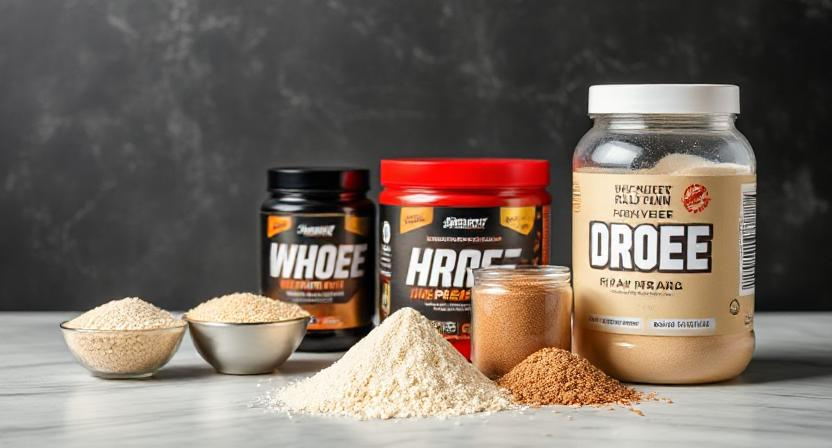In 2025, dietary supplements have become a significant part of daily wellness routines for millions, especially in India’s rapidly evolving health-conscious population. From boosting immunity to managing deficiencies, supplements offer targeted solutions. However, understanding the benefits, risks, and proper usage is vital to make informed choices.
What Are Dietary Supplements?
Dietary supplements are products consumed orally that contain nutrients like vitamins, minerals, amino acids, enzymes, and botanicals. They’re available in tablets, capsules, powders, and liquids.
Key Points:
-
Designed to supplement the diet, not replace it
-
Help in managing deficiencies and lifestyle-related disorders
-
Regulated under FSSAI (Food Safety and Standards Authority of India)
Benefits of Dietary Supplements in 2025
Supplements can offer several scientifically backed benefits when taken correctly.
| Supplement Type | Key Benefit | Ideal For |
|---|---|---|
| Vitamin D | Bone health, immunity | People with low sun exposure |
| Omega-3 Fatty Acids | Heart, brain, and eye health | Working professionals, seniors |
| Probiotics | Gut health | IBS patients, antibiotic users |
| Multivitamins | Overall nutrition | Busy individuals |
| Ashwagandha | Stress relief, hormone balance | Students, working adults |
Real Stat: A 2024 FICCI survey showed that 62% of Indian adults use at least one supplement regularly.
Common Types of Dietary Supplements
Here’s a breakdown of popular categories in India:
a. Vitamins and Minerals
-
Vitamin B12: Vital for vegetarians
-
Iron: Common among Indian women
b. Herbal and Ayurvedic Supplements
-
Tulsi, Ashwagandha, Giloy: Known for immunity and stress reduction
c. Sports and Fitness Supplements
-
Whey Protein, BCAA, Creatine: Popular among gym-goers
The Risks: What to Watch Out For
While supplements offer benefits, misuse can lead to serious issues.
Potential Risks:
-
Over-supplementation: Can lead to toxicity (e.g., Vitamin A)
-
Drug interactions: With medications like blood thinners
-
Fake products: Growing market for counterfeit supplements
Warning Signs:
-
Vague labeling
-
No FSSAI approval
-
Claims like “miracle cure”
Pro Tip: Always check the FSSAI license number before buying.
How to Choose the Right Supplements
Checklist for Indian Consumers:
✅ Identify your nutritional gap through blood tests
✅ Choose trusted brands with FSSAI certification
✅ Consult a certified dietitian or doctor
✅ Read labels for dosage and ingredients
✅ Buy from reputable pharmacies or online platforms
Stat: Over 30% of Indian supplement users choose products recommended by influencers rather than doctors — a risky trend.
Dietary Supplements vs Natural Food Sources
While supplements are helpful, natural food sources remain essential.
| Nutrient | Food Source | Supplement |
|---|---|---|
| Vitamin C | Amla, Citrus fruits | Synthetic tablets |
| Iron | Spinach, lentils | Iron tablets |
| Omega-3 | Flaxseeds, fatty fish | Fish oil capsules |
Supplements should only fill the gap, not replace meals.
Indian Regulatory Landscape (FSSAI Guidelines)
In India, dietary supplements fall under the Nutraceuticals category, regulated by FSSAI.
Important Rules:
-
Labels must declare ingredients and RDA
-
No unapproved therapeutic claims allowed
-
Import supplements must meet Indian standards
Real-World Examples and Case Studies
Case Study: Rohan, 32, Bangalore
Started Omega-3 and Vitamin D after a nutritionist consultation. Within 3 months, saw improved energy and reduced joint pain.
Case Study: Priya, 28, Mumbai
Took random herbal supplements from Instagram ads. Developed hormonal imbalance due to unregulated ingredients.
Expert Tips for Safe Supplement Use
👨⚕️ Dr. Meenakshi Sharma, Nutritionist (Delhi):
“Supplements are tools, not solutions. Your first step should be fixing your diet, then use supplements to support specific needs.”
Top Tips:
-
Stick to recommended dosages
-
Avoid mixing multiple similar products
-
Keep a supplement diary
-
Re-evaluate needs every 6 months
Conclusion
As India embraces holistic health, dietary supplements in 2025 offer incredible potential — when used wisely. From boosting immunity to filling nutritional gaps, they serve as allies in a balanced lifestyle. But blindly following trends or influencers can harm your health.
FAQs
Q. Are supplements safe for children?
Only under pediatric supervision. Never self-prescribe.
Q. How do I know if I need supplements?
Consult a doctor, run a blood panel, and evaluate diet gaps.
Q. Can I take multivitamins daily?
Yes, but stick to RDA limits and check for overdose symptoms.
✅ Call to Action
Ready to optimize your health safely in 2025?
👉 Speak to a certified nutritionist
👉 Buy only FSSAI-approved supplements
👉 Subscribe to our newsletter for science-backed health tips!
